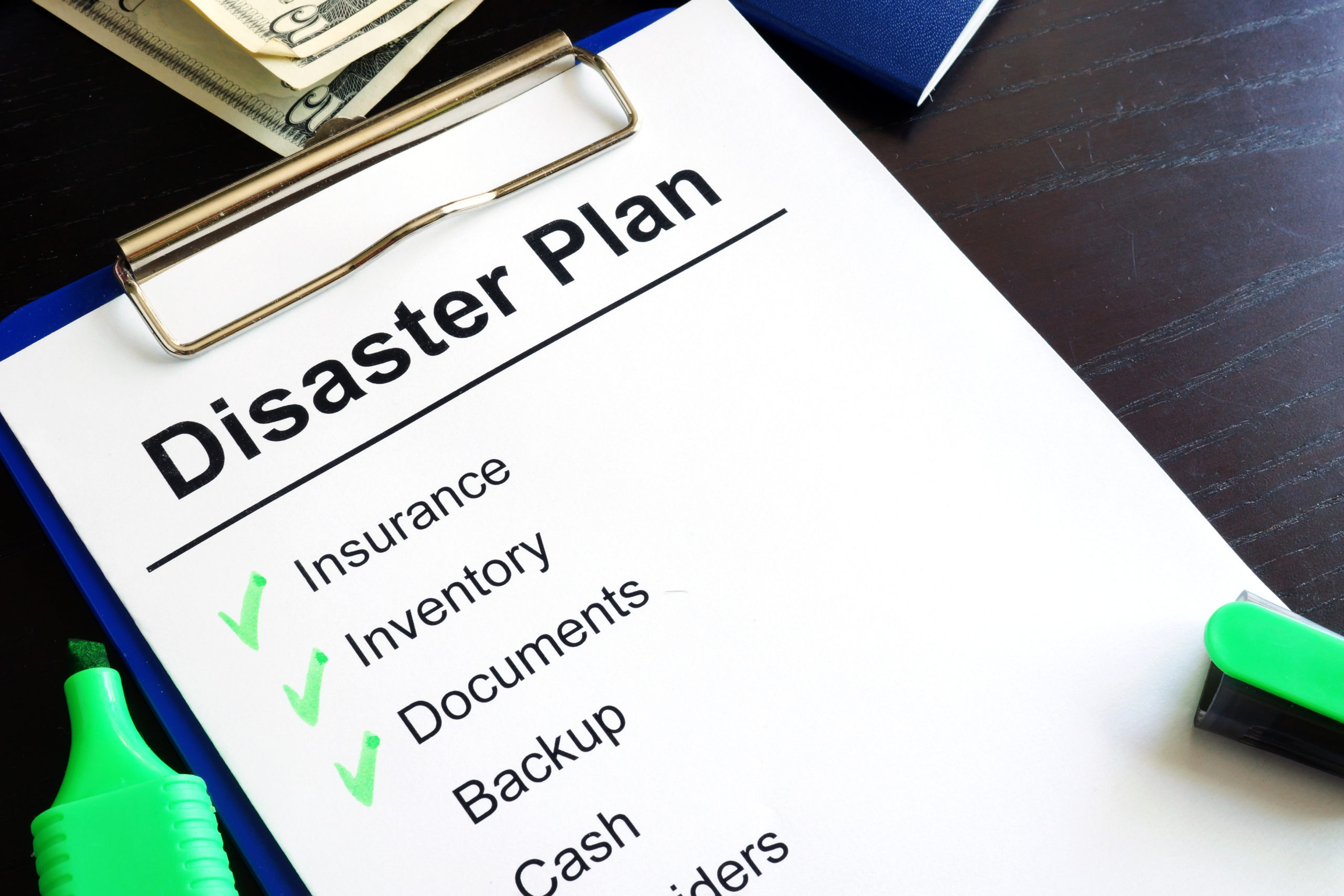No matter how large or small a professional firm is, it is good practice that a disaster recovery plan is developed. A disaster such as a flood, fire or computer virus attack could have a detrimental effect on your operations, meaning that your businesses resources could be limited for a significant period of time. Throughout this time, projects could get delayed and the quality of work performed may suffer, which can therefore lead to strained client relationships and potentially a financial loss.
If you do not have an effective disaster recovery plan in place, a short-term problem can rapidly evolve into a long-term financial disaster for your firm. Despite this, very few companies take the time to put together a comprehensive disaster recovery plan. Having a developed plan in place can help stop the disaster causing further issues for your firm. Below we have provided five tips to develop a disaster recovery plan:
1. Draft An Emergency Response Checklist
An emergency response checklist should confirm who in the firm should be notified following a disaster and the measures that should be taken to minimise the effects. If you have any employees, ensure that they have a copy of the plan and consider running trials annually for staff to familiarise themselves with their roles. It is also important to include contact details for all employees and key suppliers.
2. Regularly Backup Data
Every firm is different and has different types of data, however almost all hold some form of confidential customer data or business critical project. It may be worth considering implementing both online and offline solutions that will keep your business running if a virus were to wipe out your primary storage device. Whatever solution you choose, ensure that backups are carried out on a regular basis and can be accessed away from your usual place of work.
3. Make Arrangements For Working Off-Site
Floods and fires can be devastating for your firm and severely disrupt your operations. If your business works from an office, you may wish to arrange an emergency office space as a backup. Although many think that emergency offices are a luxury for large firms, there are companies that offer disaster recovery solutions specially designed for small businesses where (should a disaster occur) you would have access to internet, telephones and other utilities.
If you would rather not bear the costs of an emergency office, consider implementing a remote working solution so that staff can access work files and emails from home.
4. Keep Clients Informed
Dependent upon the scale of the disaster, you may want to inform your clients of the disaster. While it is always sensible to assure them it is business as usual, being up front with clients about the situation can strengthen the relationship and they may be more understanding about the resource difficulties created by the situation. You may wish to give customers additional telephone numbers (mobile and/or a temporary landline) and email address that they can reach you on until your operations are back to normal.
5. Insurance
If you own an office building, you are more than likely to have buildings and contents insurance in place, which covers against a number of disaster including flood, fire and theft. However, there are other less well known covers that can minimise the financial impact on your firm following a disaster.
Business interruption cover for example can cover the loss of income, or increased costs in working, as a result of a disaster. This could be, for example, if your business is unable to trade following a fire, or has to rent a temporary office premises following a flood. Considering it can take weeks for an office building to dry out following a flood, business interruption cover could save your business thousands if there was a disruption.
Also, professional indemnity insurance covers against allegations of negligence in your work. Managing client relationships can be particularly difficult following an unexpected disaster, and if your firm misses a deadline which costs your client money, they may take legal action to recover their losses. Professional indemnity can cover the legal fees in defending your claim, in addition to the costs in putting the mistake right.
Find Out More
John Heath Insurance Brokers are able to help with your insurance requirements in terms of buildings and contents, business interruption and professional indemnity insurance.
For more tips and tricks, Aviva have created a useful Business Continuity Guide which you can access for further information.
If you have any further queries, please contact a member of our team.
